Tension Rises As Lady With ADHD Refuses To Put Litter Box In Her Room For Her Roommate's Cats
The majority of people with attention deficit hyperactivity disorder (ADHD) find that their symptoms persist into adulthood. Some of the difficulties encountered in childhood continue to exist; they simply take on a different appearance.
Adults with ADHD may struggle with memory and organization, which can make it difficult to complete household tasks. The narrator of today's story has fairly severe ADHD, and chores are a constant problem for her since she tends to forget.
OP and her roommate moved into a new apartment together because they needed more space. OP's roommate has three cats, which she had prior to OP moving in.
When they began discussing the general setup of their new apartment, OP's roommate said something that baffled her. She stated they would need to get another litter box to put in OP's room and that OP would be responsible for keeping it clean.
She added that the cats would need a place to use the bathroom if they got stuck in OP's room with the door closed. OP told her roommate that she wasn't going to put a litter box in her room.
OP added that the cats were smart enough to ask to be let out if they needed it. Things escalated quickly as OP's roommate kept insisting that a litter box needed to be kept in her room, but OP continued to decline.
The headline

The OP has no claim over the cats
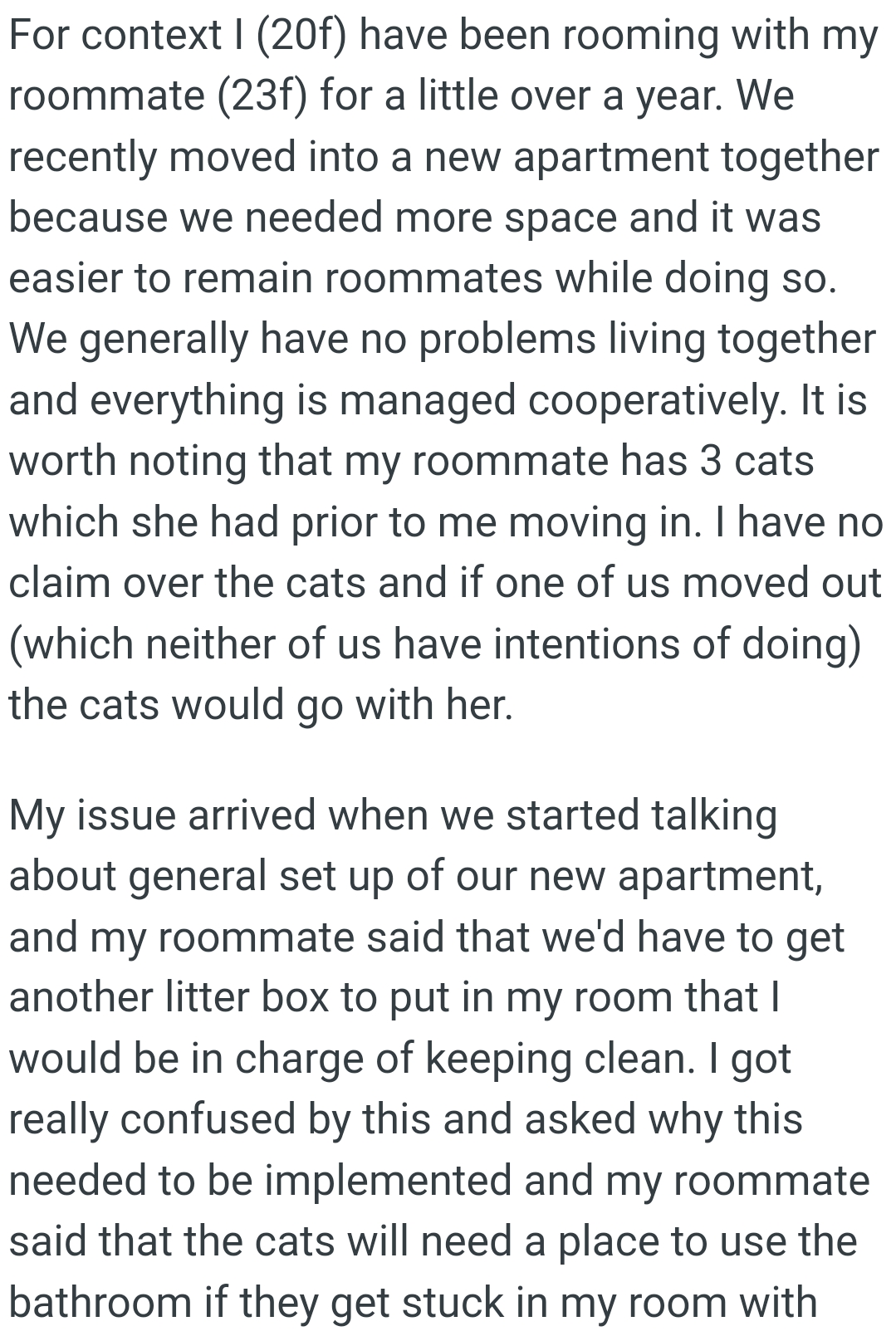
Understanding Neurodiversity and Conflict
Dr. Nancy Hall, a psychologist specializing in neurodiversity at Duke University, discusses the challenges faced by individuals with ADHD in shared living situations.
Her research indicates that individuals with ADHD often experience heightened sensitivities to their environments, which can lead to conflicts with roommates.
When expectations aren't aligned, it can create significant stress and misunderstandings.
This makes some sense to the OP
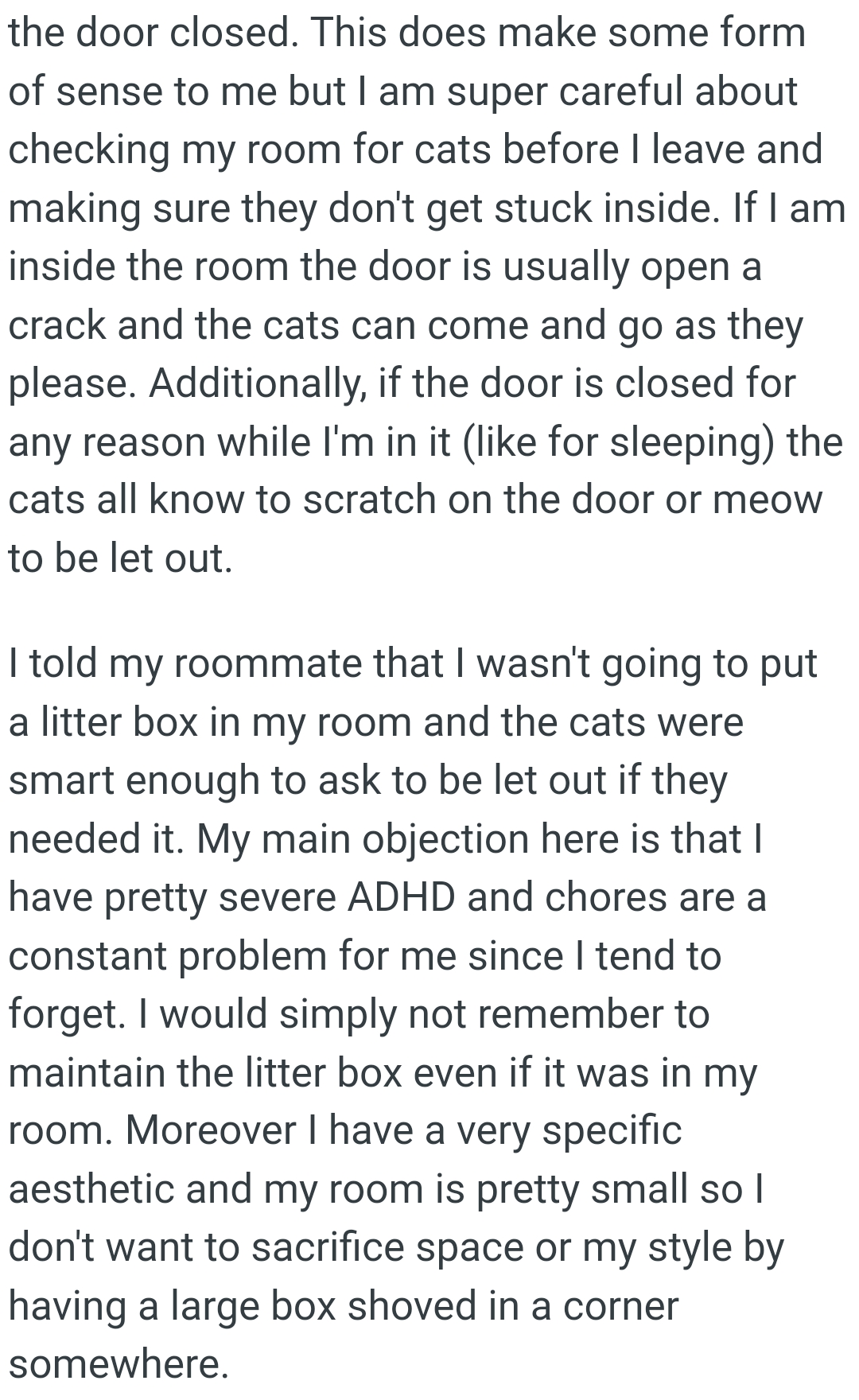
"I just wouldn't allow any of the cats in my room"
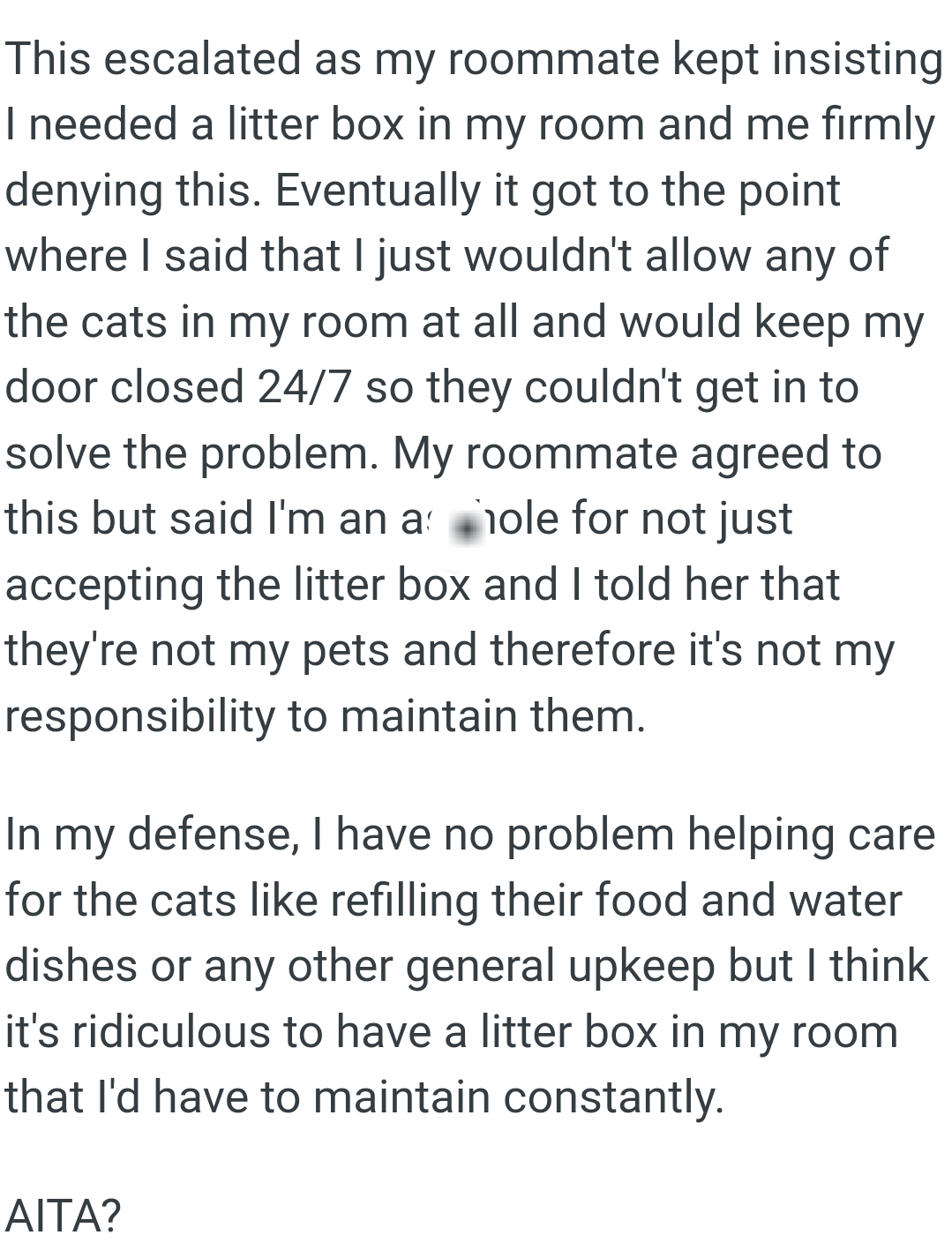
OP has offered the following explanation for why they think they might be the AH:
I feel like this was probably a stupid hill to die on. I've never had a problem with my roommate or the cats, so maybe I was being unreasonable. I've only ever had dogs, so maybe this is a normal thing for cat owners to do.
And the comments roll in...

Doesn't even sound like it was a conversation, but a decree
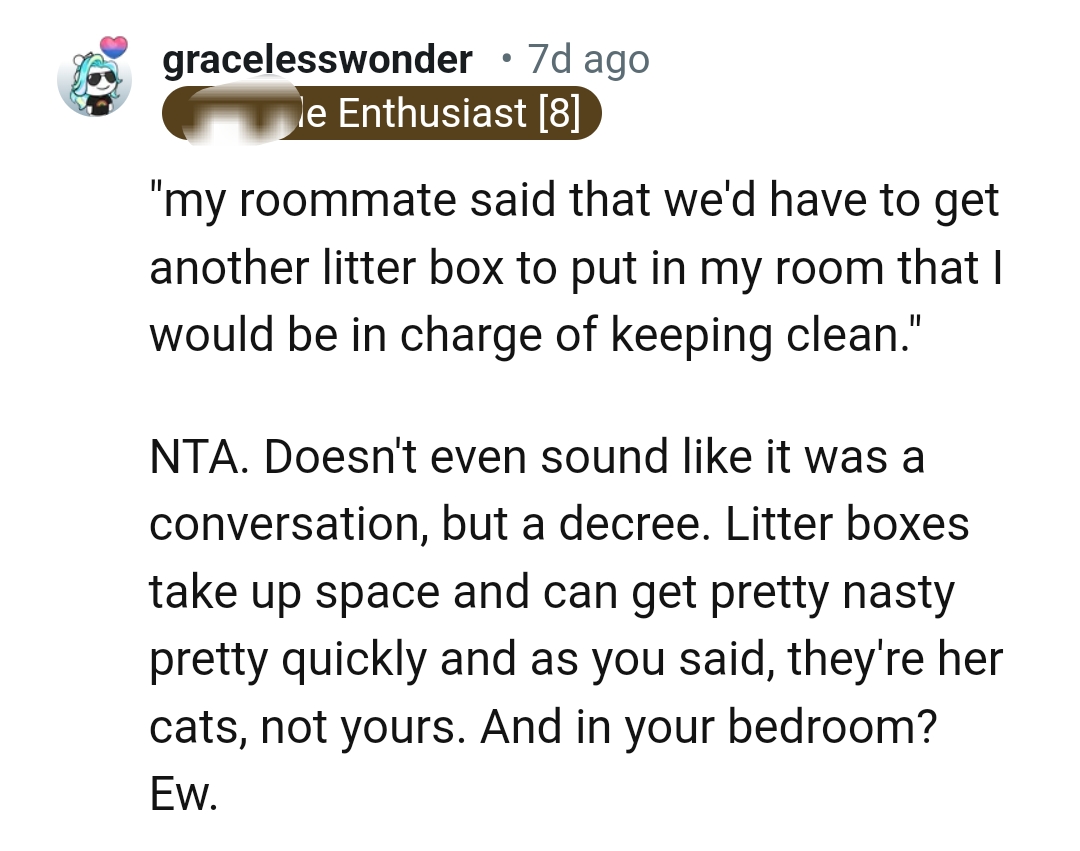
Studies show that individuals with ADHD may struggle with emotional regulation, making it difficult to navigate interpersonal conflicts effectively.
Research published in the Journal of Attention Disorders highlights the importance of creating environments that accommodate neurodiverse needs.
Understanding these dynamics can help foster more harmonious living situations.
They're not the OP's pets

OP's roomie for one

For more information, the OP left this edit later on...
- We have four litter boxes currently: one in the kitchen, one in the bathroom closet, one in the hall closet, and one in the laundry room.
- My roommate does not have a litter box in her bedroom, nor does she intend to put one there.
- I did not have a litter box in my room at the previous apartment.
There are four litter boxes
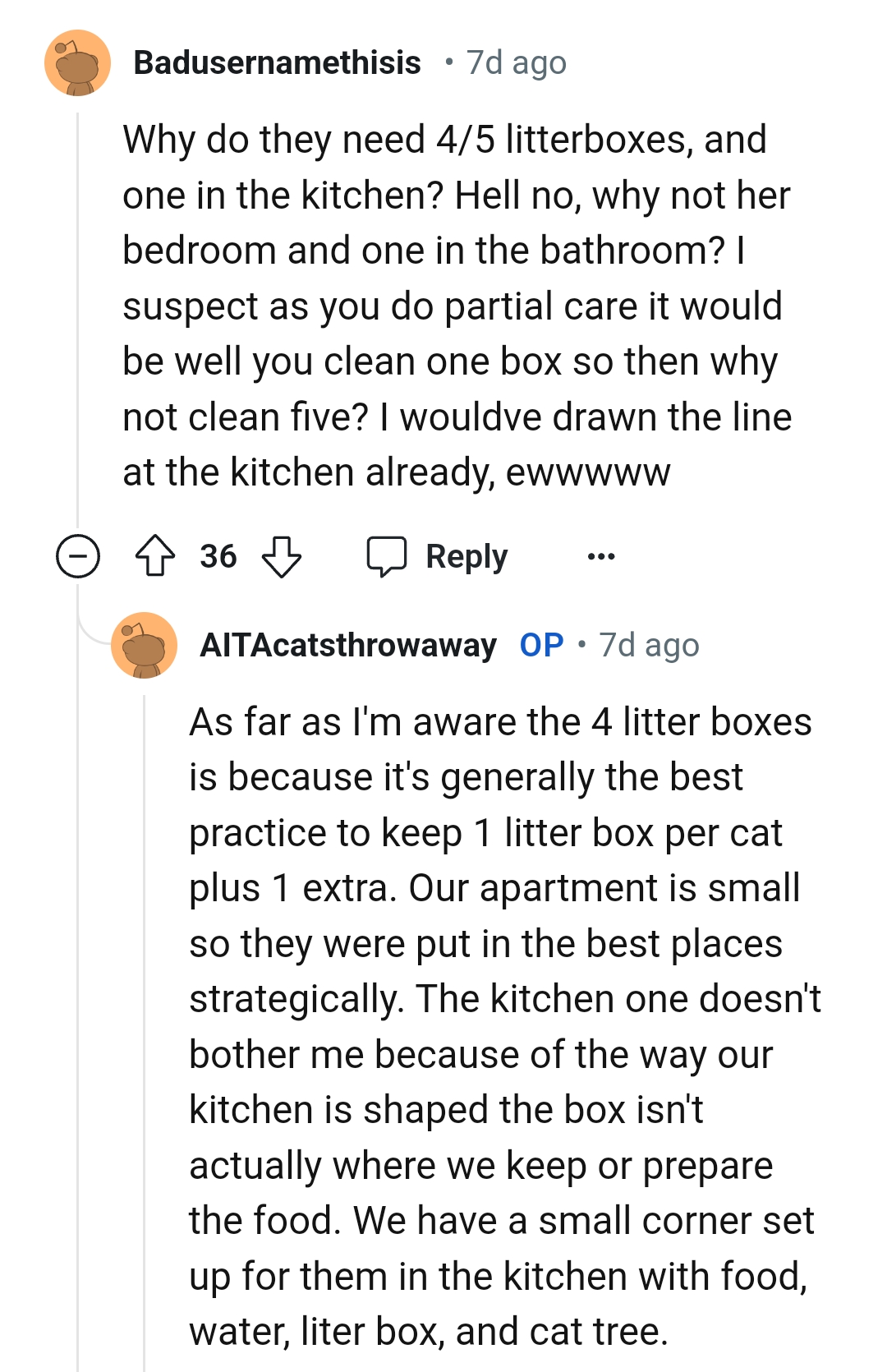
Stinking up the whole house

The Role of Communication in Conflict Resolution
According to Dr. Alexandra Solomon, a relationship therapist, "clear communication is the foundation of any successful relationship, including those between roommates." When expectations and responsibilities are not clearly outlined, it can lead to misunderstandings and increased tensions. Encouraging open dialogue, as emphasized by Dr. Michele Gelfand, a cultural psychologist, can help roommates express their needs and expectations effectively, stating, "Conflict can be an opportunity for growth when approached with understanding and clarity."
The cats will be fine
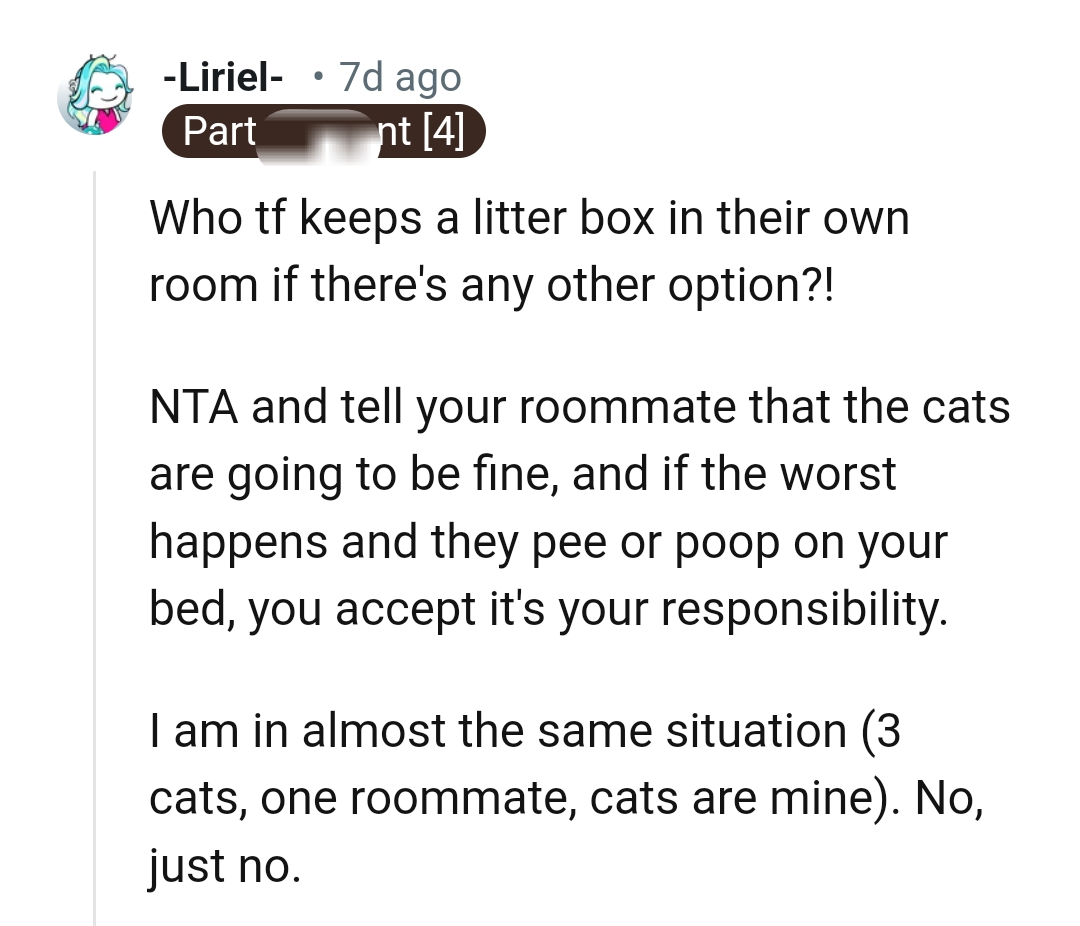
That is gross

To address these conflicts, it's crucial for roommates to establish clear boundaries and communicate their needs openly.
Research indicates that regular check-ins can help prevent misunderstandings and foster a more supportive living environment.
Engaging in conflict-resolution strategies can also improve overall roommate dynamics.
Psychological Analysis
This situation highlights the complexities of living with individuals who have different neurological profiles.
We believe that emphasizing understanding and communication can create a more supportive environment for all roommates.
Analysis generated by AI
Analysis & Alternative Approaches
Neurodiversity can bring unique challenges to shared living scenarios, particularly when expectations are not aligned.
Understanding these dynamics is essential for creating harmonious living situations.
Ultimately, fostering communication and emotional regulation can help manage conflicts effectively.
OP revealed that when she moved in, she told her roommate she was fine with the cats and would help as needed, but the litter box was all on her because she finds it gross. OP understands that maintaining four litter boxes might be a lot for her roommate, but she can't even go near the boxes when they need to be changed without almost vomiting.
Redditors understood OP, but she was declared not the AH.
Navigating Emotional Responses in Conflict
Experts recommend practicing emotional regulation techniques to manage intense feelings during conflicts.
Being aware of one's emotional triggers can prevent impulsive reactions that may escalate tensions.
Research suggests that developing emotional intelligence can significantly enhance interpersonal relationships, especially in shared living situations.



